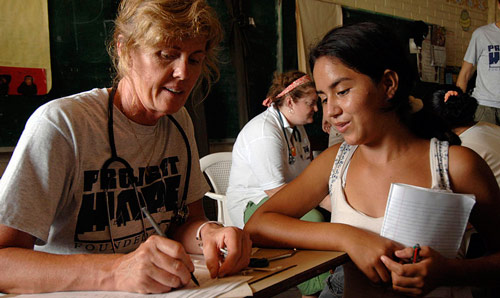Sociotechnical practices of translation and interpreting
This research aims to gain a deeper understanding of the sociotechnical practices of translation and interpreting, in which the interplay between material objects and human actors is examined from a performative perspective.
The research draws on key sociological concepts of sociotechnical practice, agency and networks and establishes connections with science and technology studies and workplace studies.
Research focus
It focuses on how translation is variously enacted in specific spatial and temporal settings, seeking to conceptualise and understand the intricate and complex relations of interdependence between those diverse enactments distributed across different sites and their modes of co-existence, despite incompatibilities and tensions.
The heterogeneity and multiplicity of the spaces in which translation happens are of interest, as is the nature of the interplay between human actors and non-human entities, particularly technological.
Methodology

In examining contemporary professional translation practices, the research framework is broadly ethnographic, using methods including participant observation in translation companies and interpretive interviews with translators, project managers and other actors involved in the translation process.
Historically situated translation practices are studied through archival and textual research, with the analysis retaining nonetheless a performative and sociotechnical focus.
Implications for translators
The extension of traditional translation scholarship, beyond a view of the translator as sole creator of the (often literary) translation product, to an understanding of translation as emergent performance within socioeconomic and sociotechnical networks has implications for the training and education of translators, translation project managers and translation technologists.
CTIS research in this area also addresses some of those pedagogical aspects.
PhD projects
- Maria Aguilar Solano (2012) Healthcare Interpreters' Perception of their Position in the Field of Public Service Interpreting in Spain: A Bourdieusian Perspective
- David Charlston (2012) Hegel’s Phenomenology in Translation: A Comparative Analysis of Translatorial 'Hexis'
- Elena Davitti (2012) Dialogue Interpreting as Intercultural Mediation: Integrating Talk and Gaze in the Analysis of Mediated Parent-Teacher Meetings
- Melanie Födisch: Social Network Analysis of Translation Production
- Lukasz Kaczmarek (2010) Modelling Competence in Community Interpreting: Expectancies, Impressions and Implications for Accreditation
- Ruselle Meade (2013) Making Knowledge Move: Translation and the Travel of Technical Textbooks in Meiji-era Japan, 1868-1894
Selected publications
- Olohan, Maeve (2015) ‘Science, Translation and the Mangle: A Performative Conceptualization of Scientific Translation’, TTR.
- Olohan, Maeve and Elena Davitti (2015) ‘Dynamics of Trusting in Translation Project Management: Leaps of Faith and Balancing Acts’, Journal of Contemporary Ethnography.
- Olohan, Maeve (2014) 'Gate-keeping and Localizing in Scientific Translation Publishing: The Case of Richard Taylor and Scientific Memoirs', The British Journal for the History of Science 47(3): 433-450.
- Olohan, Maeve (2011) 'Translators and Translation Technology: The Dance of Agency', Translation Studies 4(3): 342-357.
- Olohan, Maeve (2007) 'Economic Trends and Developments in the Translation Industry: What Relevance for Translator Training?' The Interpreter and Translator Trainer 1(1): 37-63.
- Pérez-González, Luis (2006) 'Fansubbing Anime: Insights into the Butterfly Effect of Globalisation on Audiovisual Translation',Perspectives: Studies in Translatology, 14(4): 260-277.
- St. André, James (2006) 'He 'catch no ball' leh! Globalisation versus Localisation in the Singaporean Translation Market', Meta51(4): 771-786.
